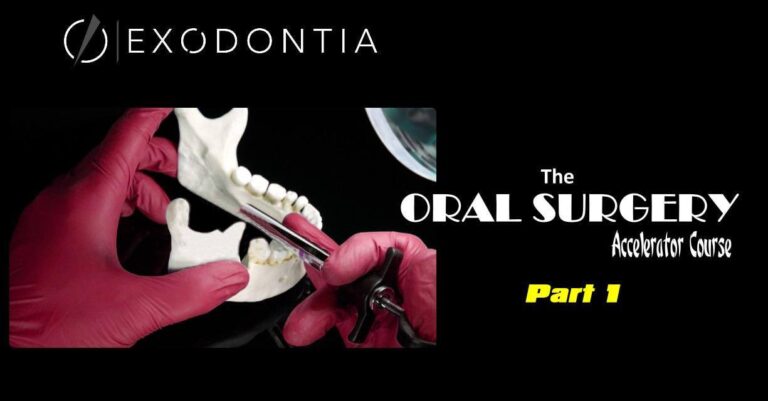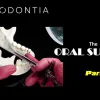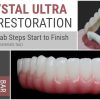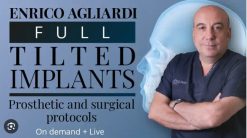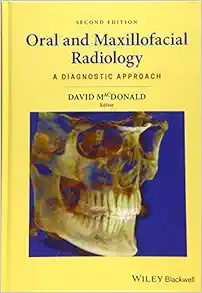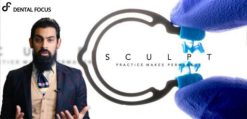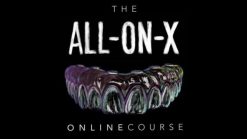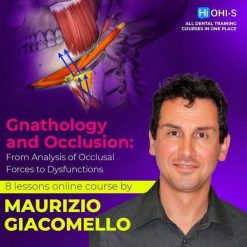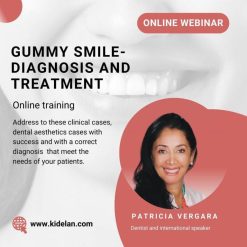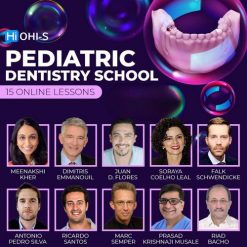Exodontia Comprehensive Oral Surgery – Jason Hoium Module 1-13
$75,00
Samples for Courses Can be found here : Free Samples Here!
Exodontia Comprehensive Oral Surgery – Jason Hoium Module 1-13
Category: Dentistry
Exodontia Comprehensive Oral Surgery – Jason Hoium
Module 1-13
Exodontia Comprehensive Oral Surgery
It’s Time…
Time is our most valuable resource… so when we trade it for something, it had better be worth it! OnlineExodontia.com pushes the boundaries of what it means to learn by pioneering a new style of online education that maximizes your time by providing only the most targeted, clinically applicable knowledge you’ll need to perform at a high level in private practice. The returns from this course will be exponential for you on so many levels if you are up to the challenge! Join me and let’s get to it!
Exodontia Comprehensive Oral Surgery
Module 1 | Oral Anatomy & Biology
1. Bone (Cancellous vs. Cortical)
2. The Periosteum
3. Gingiva
4. Periodontal Ligament Fibers
5. Inferior Alveolar Nerve
6. Long Buccal Nerve
7. Lingual Nerve
8. Mental Nerve
9. Maxillary Nerve
10. Greater Palatine Nerve & Artery
11. Incisive Foramen
12. Lymph Nodes
13. Granulation Tissue
14. Facial Artery & Vein
Module 2 | Medical Considerations
1. ASA Classifications
2. Hypertension
3. Diabetes
4. Asthma
5. Hyperthyroidism
6. Hypothyroidism
7. Anemia
8. Cardiac Issues
9. Artificial Joints
10. Antibiotic Prophylaxis for Endocarditis
11. Scarlet Fever
12. Osteoporosis
13. Liver Disease & Hepatitis
14. Hemodialysis
15. Hemophilia & Von Willebrand Disease
16. Pregnancy Pt. 1
17. Pregnancy Pt. 2
18. Chemotherapy
19. Radiotherapy
20. The Immunocompromised Patient
21. Medical Emergencies Pt. 1
22. Medical Emergencies Pt. 2
23. Medical Emergencies Pt. 3
24. Advanced Cardiac Life Support
Module 3 | Surgical Complications
1. Buccal Plate Fractures
2. Bleeding
3. Bone Chips
4. Postoperative Pain
5. Dry Socket (Alveolar Osteitis)
6. Immediate Postoperative Infections
7. Postoperative Swelling
8. Liver Clots
9. Hematomas
10. Damage to Adjacent Teeth
11. Wound Dehiscence
12. Tissue Tears
13. Extraction Socket Healing
14. Trismus
15. Burns & Avulsive Injuries
16. Puncture Injuries
17. Mylohyoid/Lingual Sequestrum
18. Broken Instruments
19. Buccal Fat Pad Exposure
20. Sinus Communications
21. Tuberosity Fractures
22. Displacement of Root Tips
23. Infratemporal Fossa Displacement
24. Osteomyelitis
25. Osteonecrosis
26. Managing Condylar Dislocations
27. Subcutaneous Air Emphysema
28. Paresthesia, Dysesthesia & Anesthesia
29. Lingual Nerve Injuries
30. Palatal Necrosis
31. Iatrogenic Jaw Fractures
32. Broken Needles
Module 4 | Infections & Fascial Spaces
1. Alveolar Ridge
2. Buccal Vestibule
3. Mandibular Subperiosteal Abscess
4. Mentalis Space
5. Submental Space
6. Sublingual Space
7. Submandibular Space
8. Ludwig’s Angina
9. Buccal Space
10. Submasseteric Space
11. Parapharyngeal Space
12. Palatal Subperiosteal Abscess
13. Infra-orbital Space (Canine Space)
14. Temporal Spaces (Deep & Superficial)
15. Infra-temporal Space
16. Infections
17. Delayed Postoperative Infections
Module 5 | Diagnosis & Planning
1. Indications for Extraction
2. Patient Examination & Interview
3. Patient Psychology
4. Radiographic Analysis for Extractions
5. Tips for Dental Radiographs
6. Extraction Planning
Module 6 | Drugs & Materials
1. Preoperative NSAIDS
2. Pain Management
3. Ibuprofen vs. Ibuprofen Sodium
4. Opioid Analgesics
5. Collaplug® vs. Gel Foam
6. Bone Wax & Bone Putty
7. Tranexamic Acid (Cyclokapron)
8. Alveogyl®
9. Warfarin (Coumadin)
10. Plavix (Clopidogrel)
11. Direct Oral Anticoagulants
12. Corticosteroids
13. Postoperative Antibiotics
14. Antibiotic Selection
15. Emergency Drugs
Module 7 | Local Anesthesia
1. Needle Gauge
2. Aspirating
3. Needle Capping
4. Local Infiltrations
5. Mandibular Infiltrations
6. PDL Injections
7. Papilla Injections
8. Intraseptal Injections
9. The Gate Control Theory of Pain
10. Palatal Injections
11. Greater Palatine Nerve Block
12. Nasopalatine Nerve Block
13. PSA Nerve Block
14. AMSA Nerve Block
15. ASA Nerve Block
16. High Tuberosity V2 Block
17. Pterygopalatine V2 Block
18. Intraoral Cervical Plexus Injections
19. Mental Nerve Block
20. Vazirani-Akinosi Technique
21. Buccal Nerve Block
22. Gow-Gates Technique
23. Inferior Alveolar Nerve Block
24. Alternative Mandibular Block Techniques
25. Failed Mandibular Blocks
26. Local Anesthetic Allergies
27. Local Anesthetic Complications Pt. 1
28. Local Anesthetic Complications Pt. 2
29. Temporary Facial Nerve Paralysis
30. Infections & Anesthesia
31. Anesthetic Carpules
32. Types of Local Anesthetic
33. Articaine
34. Topical Anesthetic
35. Epinephrine
36. Oraverse® (Phentolamine)
37. pKa
38. Local Anesthetic Buffering
39. Using Anesthetic to Diagnose
40. Pediatric Local Anesthesia Pt. 1
41. Pediatric Local Anesthesia Pt. 2
42. Anesthetizing for a Full Mouth Clearance
Module 8 | Surgical Armamentarium
1. Gloves
2. Magnification & Headlights
3. Oropharyngeal Protection
4. Bite Blocks
5. Scalpels
6. Surgical Handpieces
7. Surgical Burs
8. Surgical Suction
9. Retractors
10. Periosteal Elevator
11. Periotomes
12. Luxating Hybrid Elevators
13. EL3SX Elevating Luxator
14. 301 Elevator
15. 77R & 46R Elevators
16. 303 Apexo Elevator
17. 63 Spade Elevator
18. Cryer Elevators
19. Cogswell B & Crane Pick
20. Root Tip Picks
21. Steiglitz Forceps
22. English vs. American Style Forceps
23. 88L & 88R Forceps
24. 23 Cowhorn
25. 222 Forceps
26. 210S Forceps
27. Curettes
28. Rongeurs
29. Bone Files
30. Hemostats
31. Tissue Forceps
32. Needle Drivers
33. Scissors
34. Castroviejo Needle Drivers
35. Austin Retractor
36. Dental Explorer
37. S-12 Straight Surgical Handpiece
38. 35cc Irrigating Syringe
39. Drop Control Scalpel
40. Blue Surgical Suction Tips
41. Serrated Minnesota Retractor
42. Lucas Serrated Curette
43. 60B Elevator
44. Modified Isodry Isolation
45. Potts Elevators
46. Warwick James Elevators
47. Corn Suture Pliers
Module 9 | Surgical Technique
1. Forceps Grip Pressure
2. Patient & Operator Positioning
3. How to Use An Elevator
4. Overhand vs. Underhand Forceps Grasp
4. Basic Principles of Extractions
6. Proper Application of Forces
7. Purchase Points
8. Incisions
9. Incision & Drainage Pt. 1
10. Incision & Drainage Pt. 2
10. Basic Principles of Flaps
12. Envelope Flaps
13. Three-cornered Flaps
14. Four-cornered Flaps
15. Buccal Advancement Flap
16. Sectioning Maxillary Molars
17. Sectioning Mandibular Molars
18. Sectioning Premolars
19. Bone Removal
20. Troughing
21. Distobuccal Elevation
22. Socket Debridement
23. Interproximal Contacts
24. Socket Irrigation
25. Forceps Force Vectors
26. Finger Rests
27. Extraction Positioning
Module 10 | Extracting Specific Teeth
1. Mandibular Incisors
2. Mandibular Canines
3. Mandibular Premolars
4. Mandibular Molars
5. Erupted Mandibular Third Molars
6. Maxillary Centrals
7. Maxillary Laterals
8. Maxillary Canines
9. Maxillary Premolars
10. Maxillary Molars
11. Erupted Maxillary Third Molars
12. Pedodontic Exodontia
13. Primary Upper Second Molars
14. Primary Upper First Molars
15. Primary Upper Canines
16. Primary Upper Lateral Incisors
17. Primary Upper Central Incisors
18. Primary Lower Second Molars
19. Primary Lower First Molars
20. Primary Lower Canines
21. Primary Lower Lateral Incisors
22. Primary Lower Central Incisors
23. Primary Root Tips
Module 11 | Suturing 101
1. Suture Needles
2. Monofilament vs. Polyfilament Sutures
3. Absorbable vs. Non-Absorbable Sutures
4. Suturing Fundamentals Pt. 1
5. Suturing Fundamentals Pt. 2
6. Suture Nomenclature
7. Holding The Needle Driver
8. Palming The Needle Driver
9. Gathering The Suture
10. Controlling The Suture
11. Needle Arc
12. Simple Interrupted Suture
13. Figure Eight Suture
14. Horizontal Mattress Suture
15. Locking Horizontal Mattress Suture
16. Vertical Mattress Suture
17. Locking Vertical Mattress Suture
18. Modified Vertical Mattress Suture
19. Continuous Suture
20. Continuous Locking Suture
21. Buried Knots
22. Knot Slippage
23. Surgeon’s Slip Knot
24. Hand-Tying Sutures
25. Suture Removal
26. Common Suturing Errors
27. Suturing Tips
28. Tongue Laceration
29. Stellate Laceration (Corner Stitch)
Module 12 | Clinical Tips & Situations
1. Orthodontic Extractions
2. Protecting the Airway
3. Diagnosing & Managing Pericoronitis
4. Buccal & Lingual Decay
5. Extracting Malaligned
6. Partially Soft Tissue Covered Roots
7. Impacted Third Behind a Mandibular Second
8. Endodontically Treated Teeth
9. Hypercementosis
10. Internal & External Resorption
11. Ankylosis
12. Fused Upper Molar Roots
13. Retained Roots in Edentulous Patients
14. Sectioning Tips
15. Sectioning Primary Molars
16. Extraction of Retained Primary Teeth
17. Impaction vs. Primary Retention & Secondary Retention
18. Managing Root Tips
19. Oroantral Communications
20. Extracting the Wrong Tooth
21. Tips for Multiple Extractions
22. Proper Gauze Placement
23. Iatrosedation
24. Molar Incisor Hypomineralization
Module 13 | Mastering Impactions
1. Third Molar Development
2. Theories & Causes of Impaction
3. Sequelae of Impacted Third Molars
4. Third Molar White Paper Pt. 1
5. Third Molar White Paper Pt. 2
6. Third Molar White Paper Pt. 3
7. A.A.O.M.S Position Statement on Third Molars
8. Prophylactic Third Molar Removal Pt. 1
9. Prophylactic Third Molar Removal Pt. 2
10. Mandibular Anatomical Overview
11. Maxillary Anatomical Overview
12. The Dental Follicle
13. CBCT Imaging vs. Panoramic Radiographs
14. IAN Proximity
15. Classification Systems
16. Case Selection
17. Surgical Consent
18. Surgical Site Preparation
19. Third Molar Anesthesia
20. Lingual Infiltration
21. Flap Design
22. The Incision Pt. 1
23. The Incision Pt. 2
24. Flap Elevation & Retraction
25. Bone Removal & Troughing Pt. 1
26. Bone Removal & Troughing Pt. 2
27. Purchase Points
28. Sectioning
29. Elevation & Force Application
30. Wound Debridement
31. Wound Closure Pt. 1
32. Wound Closure Pt. 2
33. Mesioangular Impactions
34. Horizontal Impactions
35. Vertical Impactions
36. Distoangular Impactions
37. Maxillary Impactions Pt. 1
38. Maxillary Impactions Pt. 2
39. Managing Postoperative Bleeding
40. Third Molars & Antibiotics
41. Coronectomy
Exodontia Comprehensive Oral Surgery
Related products
$40,00
Dentistry
$40,00
Dentistry
$50,00

